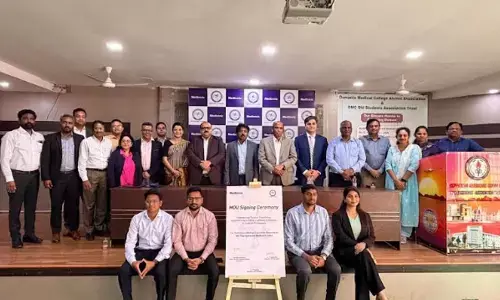18 per cent of teens drink caffeine to stay awake: Study
Share :

Among parents who said their teen drinks caffeine most or all the day of the week, a new study on Monday revealed that 18 per cent drink it to "stay awake".
New Delhi: Among parents who said their teen drinks caffeine most or all the day of the week, a new study on Monday revealed that 18 per cent drink it to "stay awake".
The study conducted by the US-based University of Michigan found that a quarter (25 per cent) of parents reported their teen consumes caffeine daily or nearly every day.
"Our report suggests parents may not always be aware of how much they should be limiting caffeine consumption for teens," said poll co-director and Mott paediatrician Susan Woolford, MD.
The study is based on responses from 1,095 parents of teens polled in February.
Parents reported that the most common caffeine sources for their teen are soda (73 per cent), tea (32 per cent), coffee (31 per cent), and energy drinks (22 per cent) and said that they take caffeine most frequently at home (81 per cent), when dining out (43 per cent), with friends (3 per cent), and at school (25 per cent).
"Caffeine is a drug that stimulates the brain and nervous system, and too much of it can contribute to a variety of health problems in young people," Woolford said.
The American Academy of Pediatrics discourages caffeine intake by children and adolescents, and other experts suggest a limit of 100 milligrams per day for teens, the study mentioned.
About 60 per cent of parents said that they have heard about the risks of highly caffeinated products but roughly half mentioned that they rarely look at caffeine amounts when buying beverages for their teen.
"Parents should consider talking with their teen about the negative impact of excessive caffeine, and then explore non-caffeinated options they can try together at home, at school or when out with friends," Woolford said.
"Parents may also enlist the teen’s healthcare provider in explaining the risks of caffeine and suggesting strategies to cut back," she added.
















